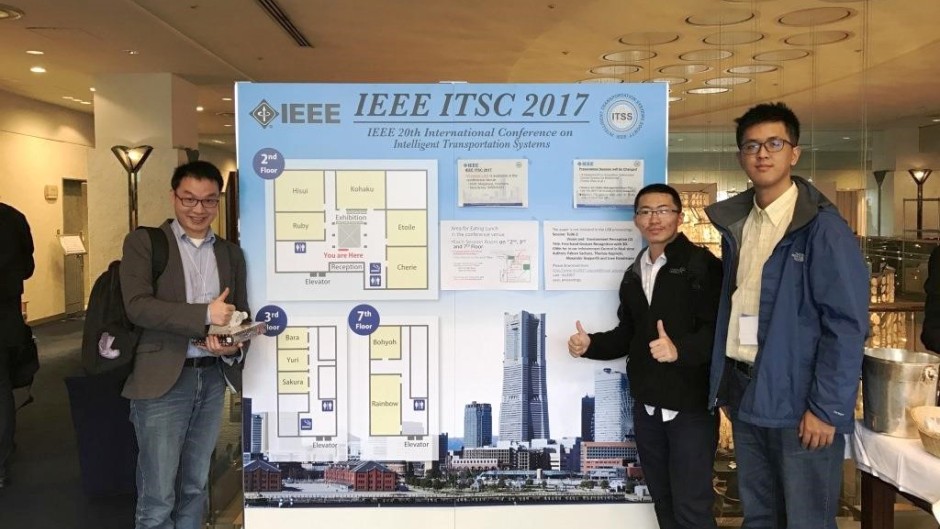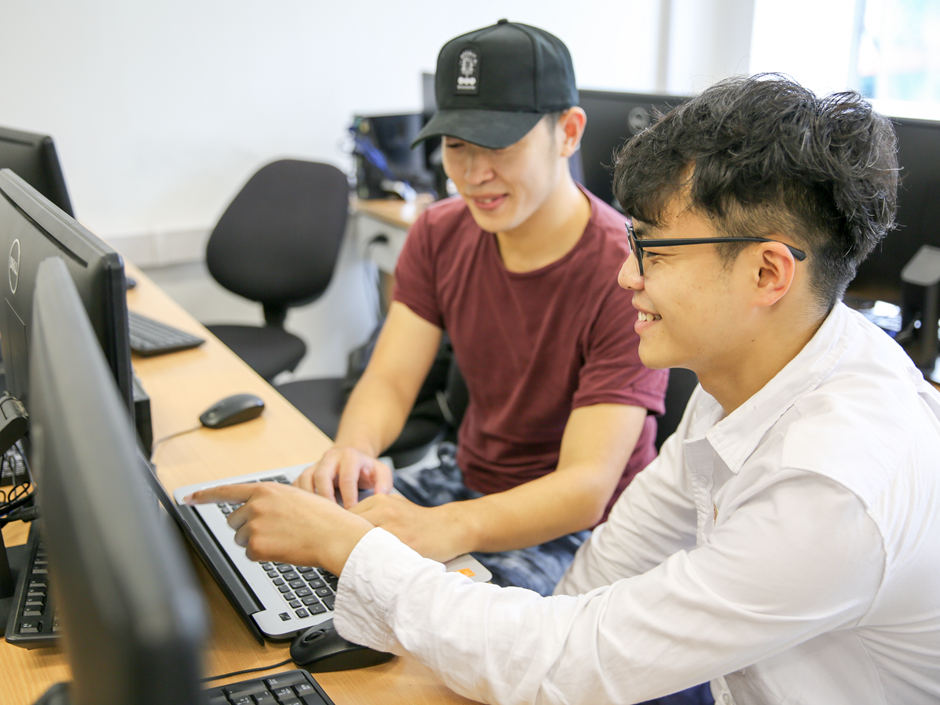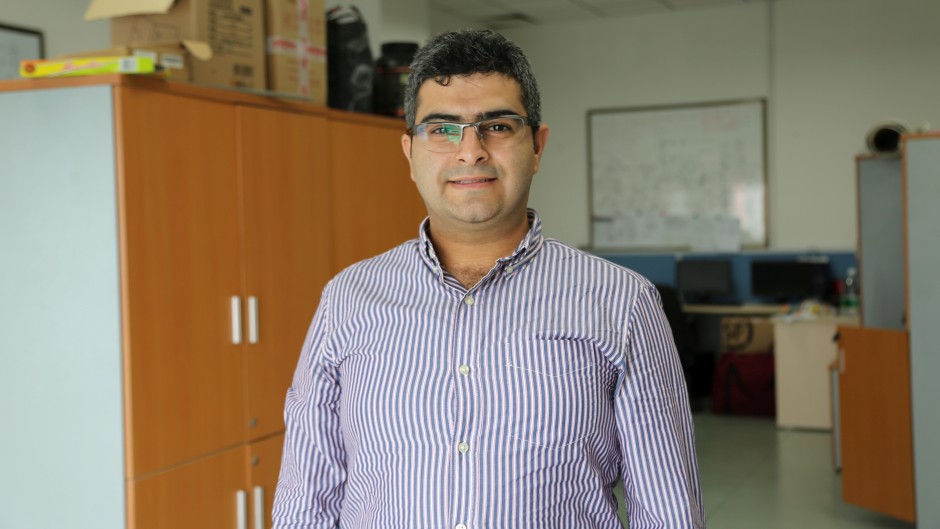15 Nov 2017
Two undergraduate alumni of Xi’an Jiaotong-Liverpool University presented their research projects on improving energy efficiency of railway vehicles at the 20th IEEE International Conference on Intelligent Transportation Systems in Yokohama, Japan.
Zhaoxiang Tan and Kai Bao from the Department of Electrical and Electronic Engineering, who graduated in summer 2017, presented papers based on the research outcomes of their final year projects led by Dr Shaofeng Lu.

Regenerative braking is one of the means by which energy efficiency is improved in railway transport systems – the energy generated by slowing the vehicle is converted into a form that can either be stored or used immediately to power other trains.
Another method is speed trajectory optimisation, which is relatively inexpensive as there is no need to upgrade the railway infrastructure. The research projects presented by the XJTLU alumni in Japan concerned this method, which Dr Lu explained with an analogy:
“If you think about cars – there are bad drivers and good drivers,” he said. “Bad drivers accelerate unnecessarily and brake too much. Good drivers are more energy-efficient and use less petrol. Similarly, we can optimise the energy efficiency of trains by avoiding unnecessary acceleration and braking.”

The two research projects employed different methods to solve the same problem: Zhaoxiang’s uses mathematical programming (‘mixed integer linear programming’) to model and optimise trajectories, while Kai Bao's work is based on ‘optimal control theory’, proposing an intuitively developed numerical algorithm to achieve optimal train speed trajectories.
“Zhaoxiang’s main contribution, based on my own previous research, is a distance-based model for optimising speed trajectories,” explained Dr Lu. “The mathematical model he developed is able to calculate the optimal speed trajectory for a train while considering factors such as journey time, route altitude, and speed limits.”
Student Kai Bao commented that he felt lucky to participate in an international conference for the first time, particularly one that attracted so many excellent researchers from around the world.
“Our undergraduate students are really applying themselves to research projects and making significant contributions,” added Dr Lu. “They are passionate, self-motivated, and show great capacity for teamwork.
by Danny Abbasi; conference photo provided by Dr Shaofeng Lu
15 Nov 2017
RELATED NEWS

Student team develops classical Chinese translation software
Classical Chinese, also known as Literary Chinese, is the language of classic literature used for more than 2,000 years in China. These days many people have...
Learn more

Air-conditioning research could lead to big energy savings
Mehdi Pazhoohesh, a postgraduate student at Xi’an Jiaotong-Liverpool University, has been conducting research into air-conditioning technology that could lea...
Learn more








